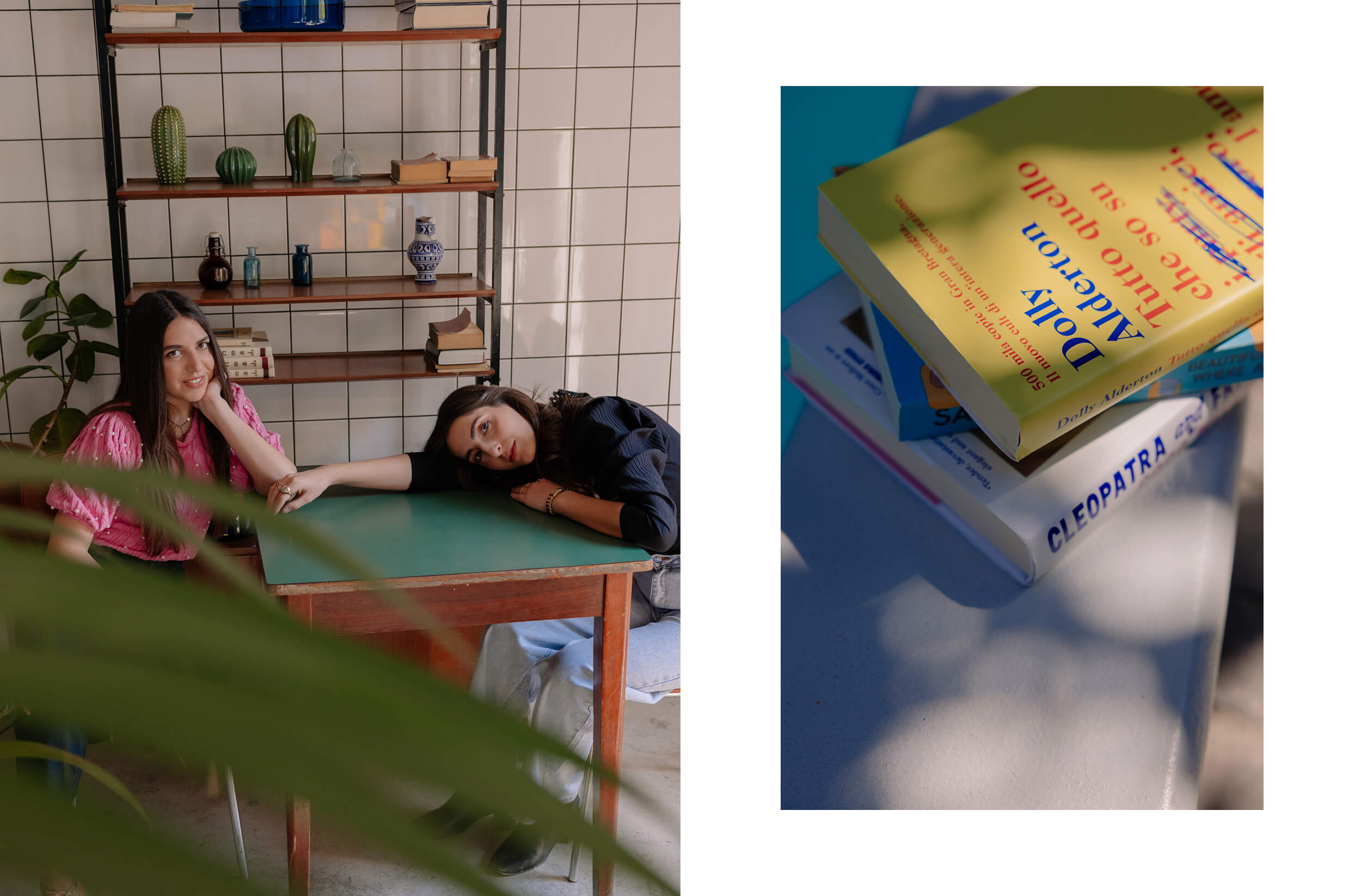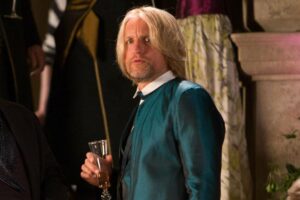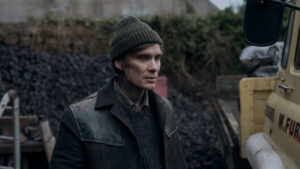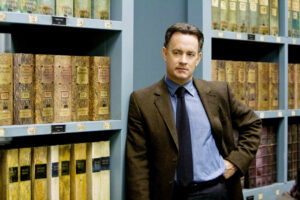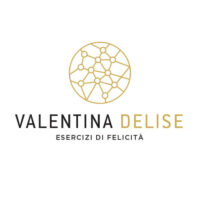When you spot something new, you can’t but stop and look at it. And, if you’re wise enough to find it interesting, you get even deeper into it. And sometimes you find out that what you’ve just come across is simply brilliant.
This happened to me with Heloola: a book club, community, and portal where to find the desire to read or simply do it together with other people who share your same passions, or to start conversations that make you feel good.
Heloola was founded by Giada and Alice Cancellario, who decided to “quit everything” to apply here in Italy a formula of bookclub that’s more similar to entertainment, a place that’s always pervaded by emotions. A “startup that turns reading into an enjoyable activity”, as the founders define it.
We’ve met them and, together, we’ve chatted about books to read, expectations that make us look forward to 2024, books that are good for our mental health, multifaceted characters, and wonderful female authors who can also become friends.
In a world where it’s maybe hard to make most people fully understand what we do and with still a long way to go, and willingly so, Alice and Giada have only one tattoo in mind: “It’s for the plot”.
Speaking of beginnings: when did you understand that Heloola was what you wanted to do?
A: Honestly, there wasn’t a specific moment, you know one of those glimpses in which you see the path clear and say, “Okay, I’ve decided I have to do this”. It was a process and something that really surprised me, as well, the fact that there was no real moment in which I told myself, “All right, today is the day I quit my corporate job and start Heloola”. For much longer than I wanted, I’d been in both worlds, but then at a certain point, the decision to go all-in with Heloola came up also for a matter of energy and schedules. Back then, I used to work in Tik Tok, which was extremely demanding, and Heloola was, too, so for a phase of my life, I’d been able to do two jobs and separate them, doing one in the morning and one in the evening, but at that time I really had to do both things all together all the time.
For me, everything started from the need to let go of one of the two things. I certainly didn’t feel like quitting Heloola because I would see it and I still see it as something with great potential, in the sense that I don’t think we’ve still reached the top we’re going to reach someday, but I feel a positive energy that makes me think the direction is right.
G: For me, it was a bit different because I used to do another kind of job, so initially Heloola served me as an outlet, as something to do that could satisfy me, that I liked and in which I believed, which is something that my former job didn’t do. But not because I’d chosen to do a job in which I didn’t believe, but because obviously, when you start something, you don’t know how it’s going to go, so in my head it was much different. After several attempts, I told myself that I had to take control of my life. By founding Heloola, I realized I would learn more in that way than in an office, and I also noticed how Covid has had a huge impact, in my case, because it was with the pandemic that I started asking myself: “What am I doing?”.
Six months after my resignment, we pressed the accelerator, which made us see Heloola as not only an escape from our job and a plan B but as a concrete reality. It was then that Alice said: “Okay, either we do it or we don’t”.
In the end, you have to get on with things, which though doesn’t mean you shouldn’t also be scared.
A: On the contrary, you’re very scared, but what no one tells you nor teaches you is that no day will come where it won’t be scary, where you’ll think you’ll be able to quit your hypothetical second job. If you believe it’s worth it, you quit and go through a phase where you feel anxious every day, and then, little by little, you understand that anxiety, too, can be replaced by very beautiful feelings, and great satisfaction.
G: Moreover, if you like your job, in the end, you’re open to making sacrifices. The sacrifices we’ve been making in the past year, I would never do them for a company, and they’re huge sacrifices because we basically don’t have a life [laughs], but we love what we do and so that’s our life, which is why we have sweet dreams at night. With my other job, instead, I felt like all the time I would spend at work wasn’t a time of life for me, so when that amount of time becomes significant, you start asking yourself certain questions. This is a generational thing, all millennials like us have been brought up with the mindset of believing that “you can do what you like”, and the more boring, the more legitimate and important it is.
A: This is true for the startup world as well. The fact of pitching a project like Heloola, which involves the emotional and private sphere, as well, to say that we choose books aiming at making people fall in love with them, and they’re books I personally love. I cry during interviews with the authors because I’m involved firsthand, but automatically ours isn’t considered a job because it’s fun, nice, and it’s not boring: there’s this instant association between whatever is terrifying and your job, while all the rest in life is the fun part.
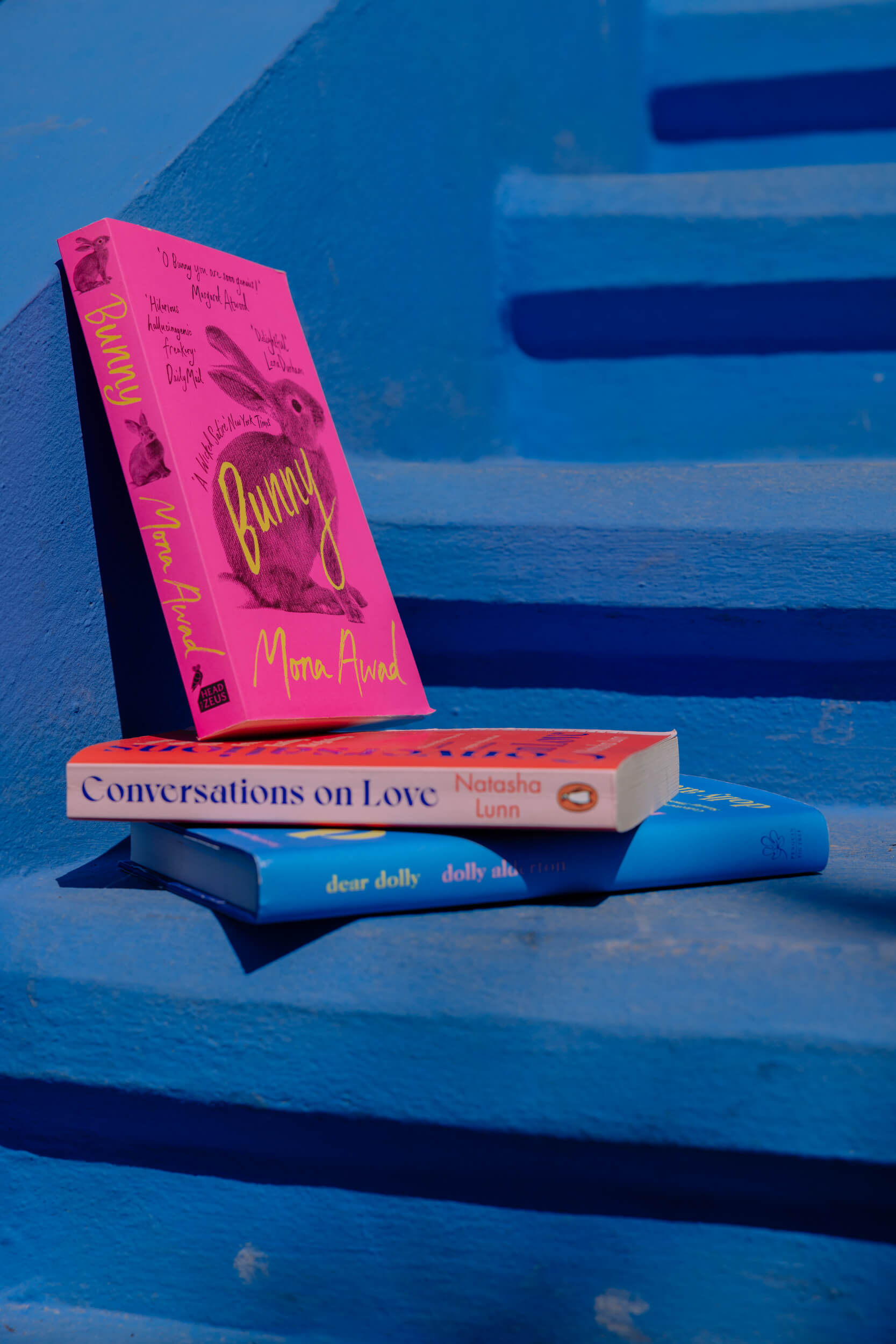
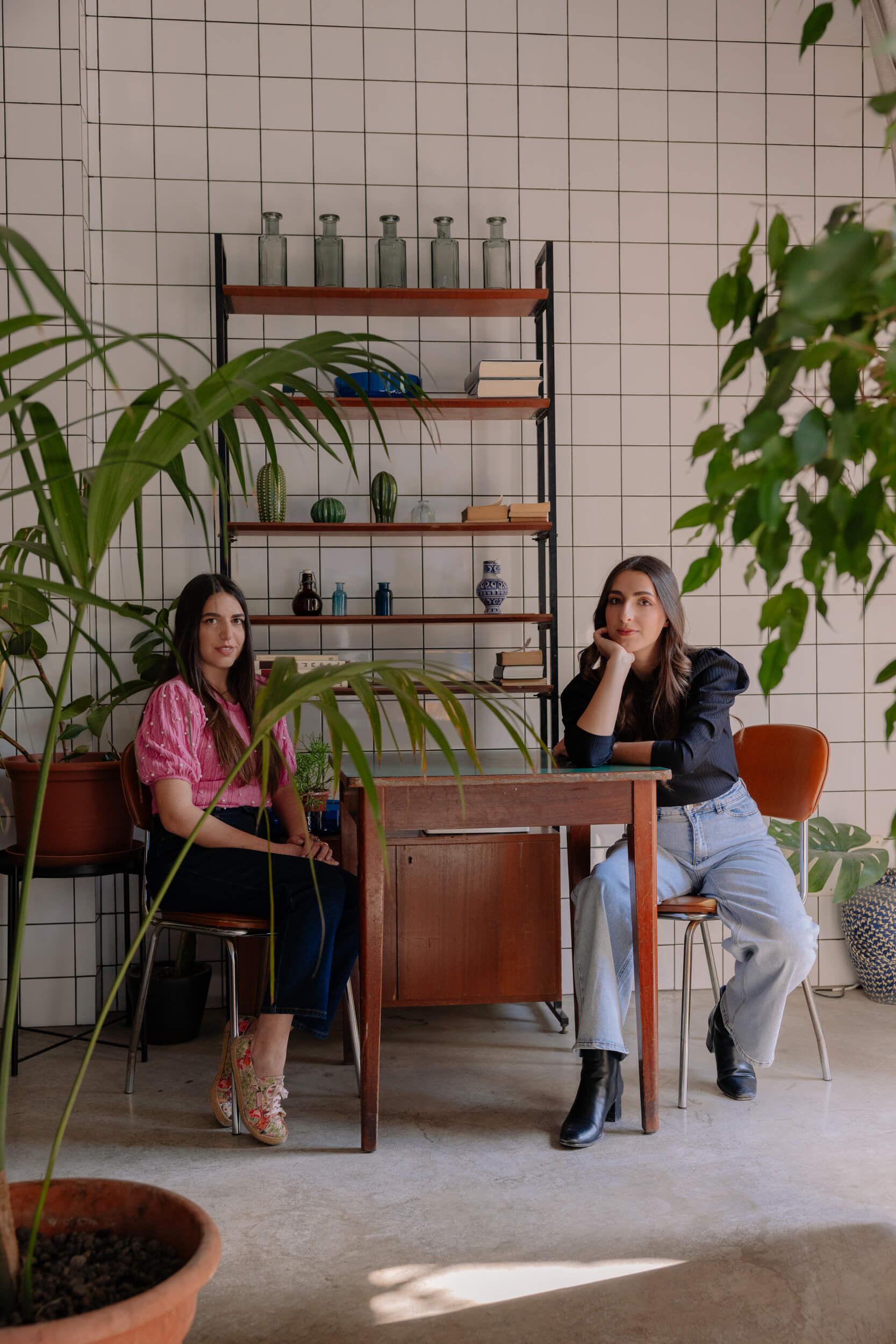
From the simple concept of a book club, which is something that’s always existed, the phenomena of “BookTok” or “Bookstagram” were recently born. How important was this change for you? Did you feel it as you were growing or was it more natural?
A: I think that in Italy we’ve been pioneers of this change, in the sense that we’ve not reinvented the wheel nor discovered the moon, but we’ve taken a communication model which belonged to a different entertainment sector, where I would work, by the way, which is why this connection came up, or a very popular model abroad, and we decided to apply it in a non-industrial sector that in Italy didn’t work like this. We started in a very amateur way, but always with a professional approach, when we created our Instagram pages in 2019.
We’ve never had an individual approach to the books that we have on our nightstands. Ever since we founded Heloola, it’s always been plans designed with other people in mind and not my favorite books. Then, accidentally, the two things pair up because oftentimes, when we like a book very much, other people like it very much, too. This is because we’ve set Heloola as something for others rather than for ourselves and, little by little, we realized it worked. We weren’t the only ones to realize this, but the ecosystem started to recognize in the job we were doing something new that would have triggered generalized enthusiasm.
G: We’ve recognized our impact in the way of communicating, and editors, in particular, say this to us. They have started to see this way of communicating as something more professional/official.
Absolutely. I, in a very spontaneous way, have often described you as “the only people who have managed to make this business work in Italy”.
G: In fact, when we started to collaborate with editors, they were also a bit confused because as we both came from corporate, we would see this as a real job; I, in particular, would see the editor as my client, in those moments, so we were very concrete in presenting our intentions, goal-wise, budget-wise, and they did like this attitude. It was new, as well as the fact that we never let others tell us what book to talk about. In general, on social media, a very popular theme is that of adv, gifted products, paid partnerships and stuff like that, but if I have an ethic of mine, do I really accept money to talk about something I believe in and, above all, to say, “I’m currently reading this book”? No, I do this to create content, storytelling, and a journey, and the fact that I’m lucky enough to do something I love is a plus.
The problem is that people often tend to believe that “we get paid to read a book that we like”: but it’s not about books, it’s about what comes after that!
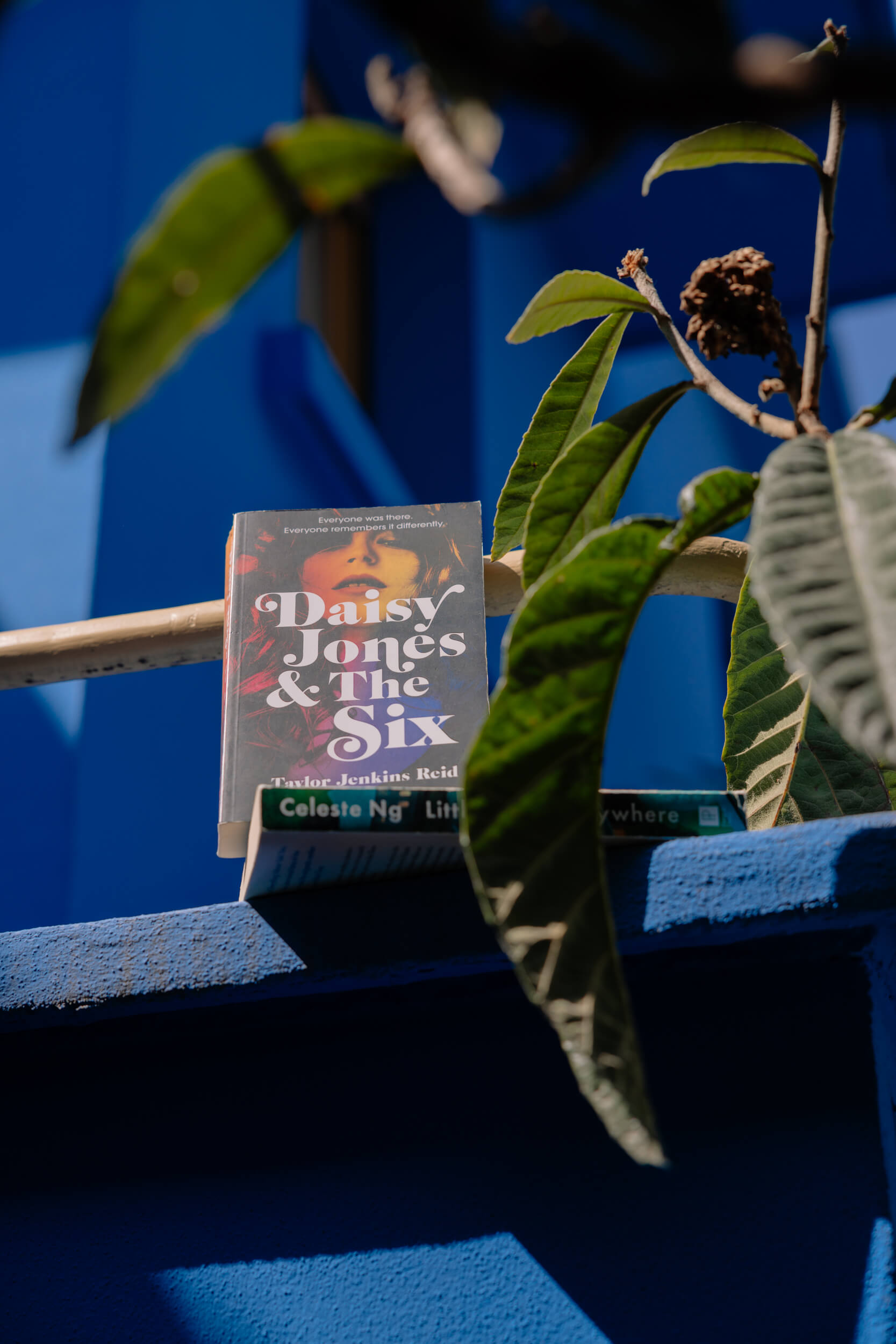
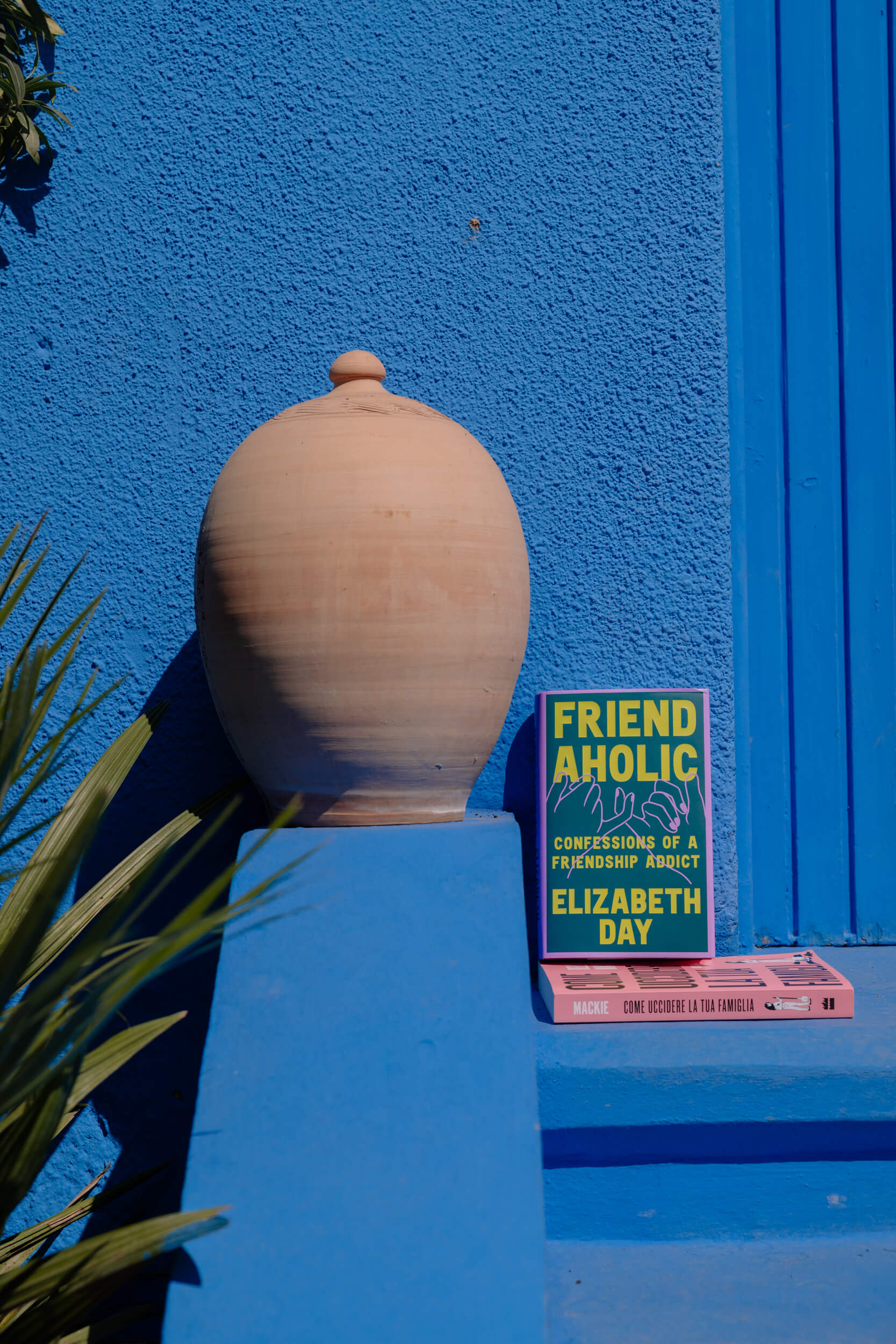
“Ever since we founded Heloola, it’s always been plans designed with other people in mind”
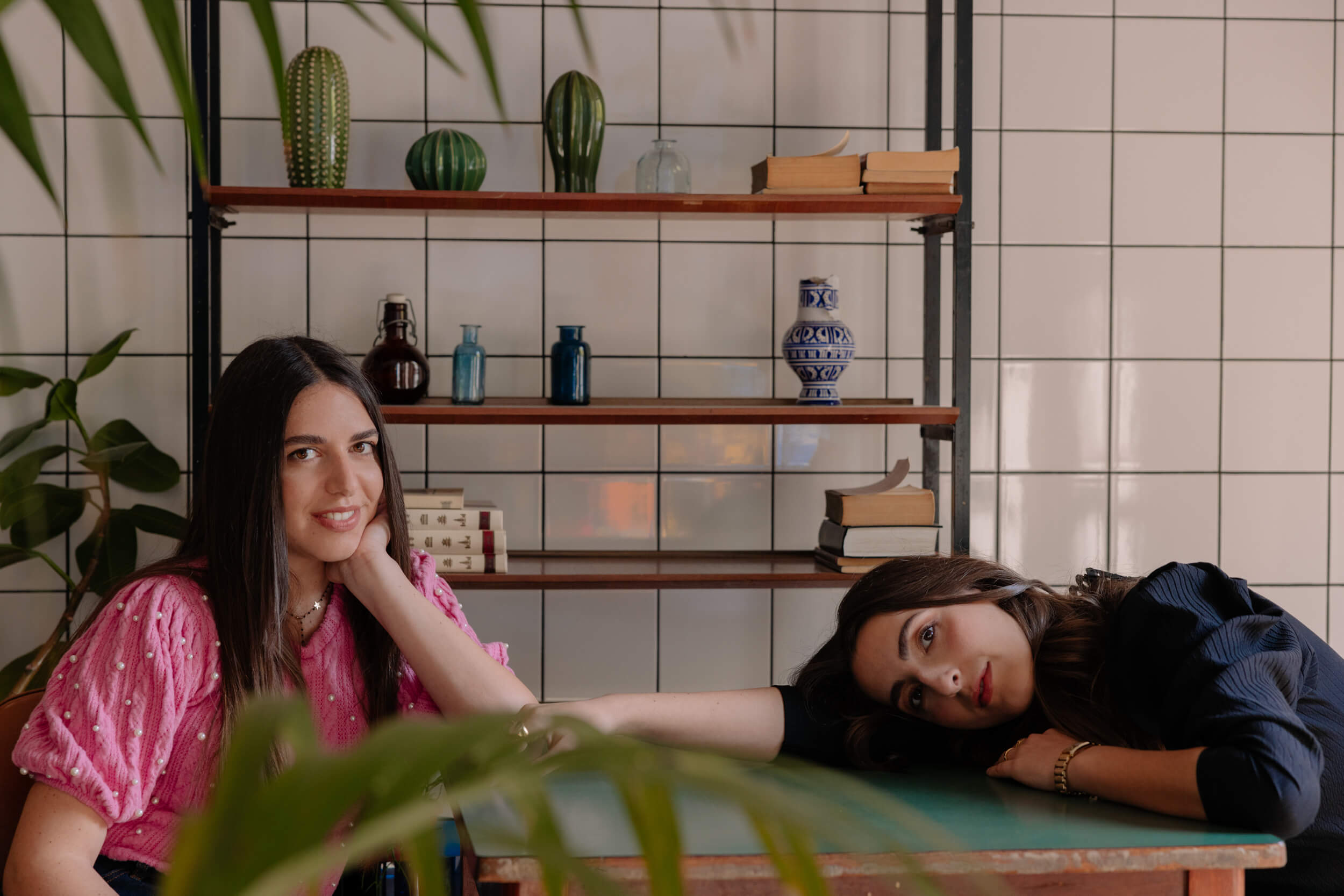
It’s all the things you do even in terms of interviews, it’s an experience.
A: Here’s another way we like to call Heloola: the startup that turns reading into an enjoyable activity. There’s a huge stigma around books, there are two big circles that I think are both circles of hell: one where reading identifies you as an intellectual, so you’re awesome because you’re into reading, whatever book you’re reading, and especially if you’re reading a certain type of classics of literature, which also includes the way you talk about them because, in these cases, what you do is a sort of gatekeeping – you’re not happy to share this thing you do because you don’t believe it’s accessible by everyone, it’s yours and you’re on a pedestal that no one else can reach. Then, there’s the other circle that includes low-quality literature, where triumphs a conflict between A-class and B-class books, labels that many people don’t believe should exist. But they should, instead, especially in literature, where it’s quite evident when you’re high-level and when you’re not. For us, it’s very difficult to be in the middle because we do something that’s cool, and the books we choose are cool: they’re not boring, you don’t have to be a scientist to understand them, you don’t need to have preliminary literary experience, but at the same time they’re not low-quality. Oftentimes, when we say that we offer literature with a pop attitude, and someone wants to propose us some books, no one ever mentions Sally Rooney, which is something that should be done, but they only mention other stuff, which is not pop literature but rather bad books.
G: This is because it’s very hard to find enthusiasm, and it’s also the reason why we founded Heloola. The conversations we’ve had with you today about the books we’ve read weren’t aimed at boasting about having read something rather than something else, but they were natural, nice, and satisfying conversations, and if you think about it, until some years ago it wasn’t like this. I always like to tell this story about Formentera, where we once were at the beach reading “beach” books – I was reading “Big Little Lies” and Alice was reading “How To Kill a Mockingbird” (which is not really a beach book) – and this boy approaches us, he was the typical clubhouse PR guy who wanted to invite us to a party, and he says: “Girls, no reading here, we’re in Formentera!”. This shows that reading is not seen as an entertaining activity to do on holiday, but always as an imposition, so as something “you don’t do in Formentera, at the beach”. Our idea is exactly to get to a point where you’re at the beach in Formentera with a huge bag of books with you, and you enjoy them.
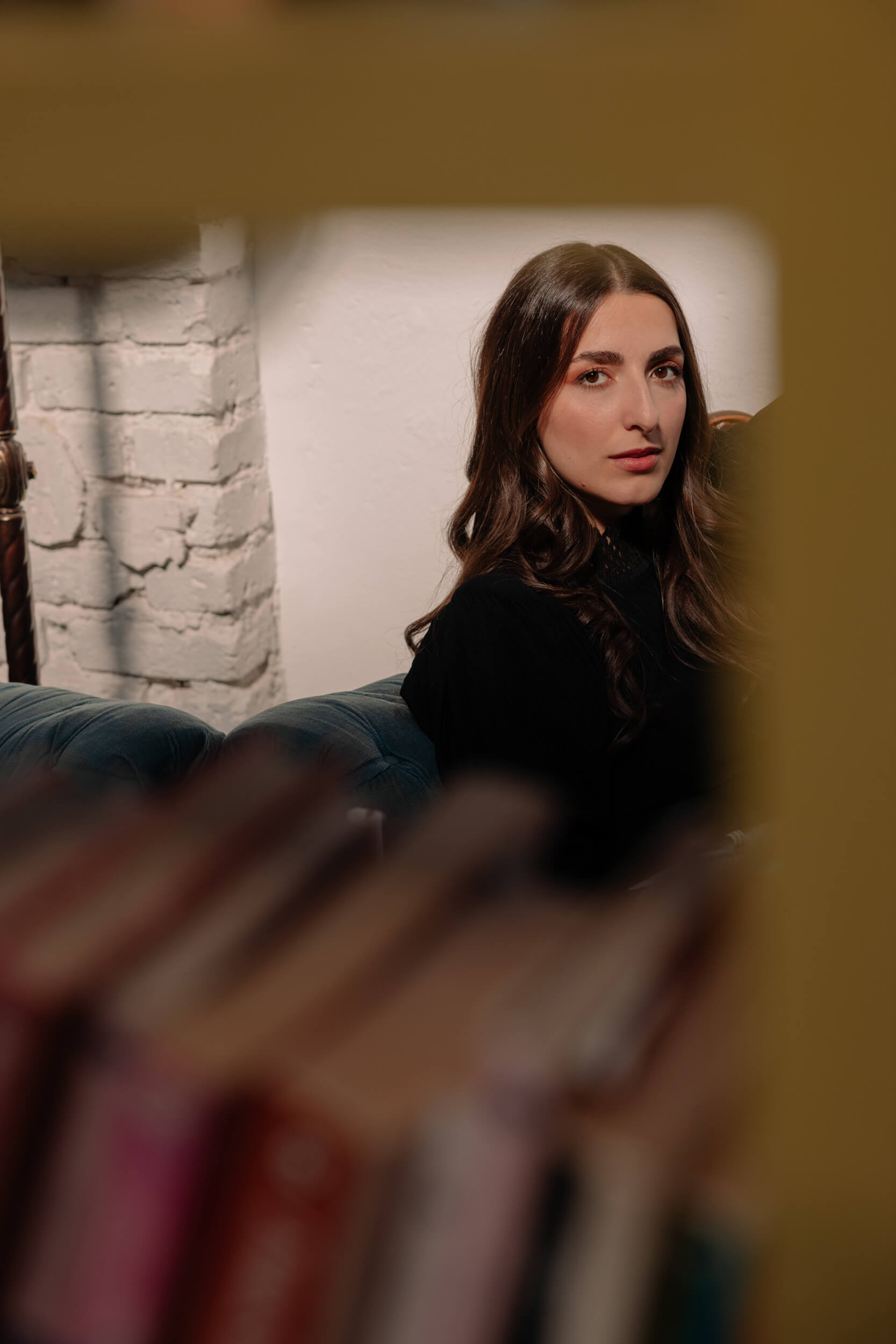
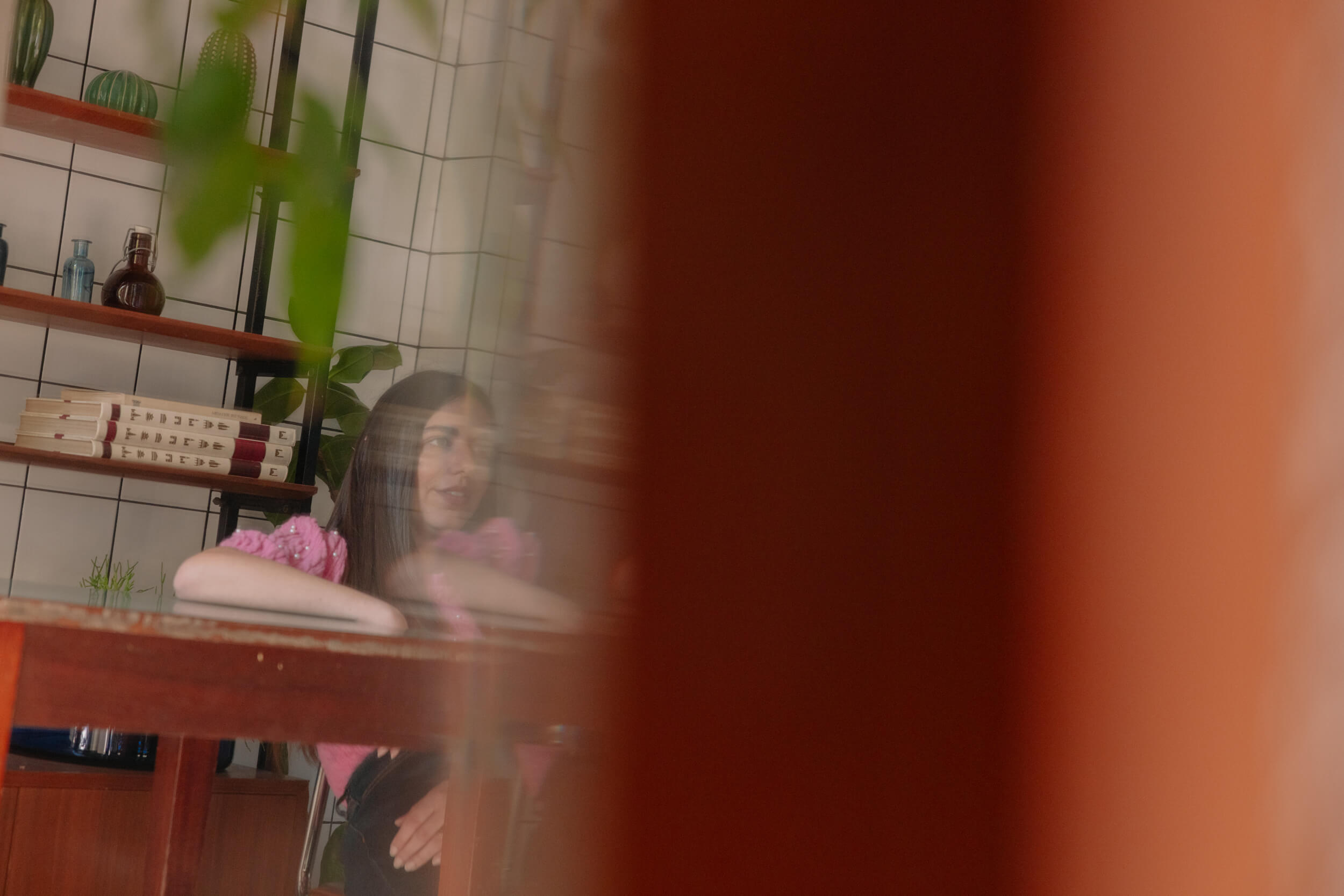
Was there a moment, perhaps also with the authors you’ve interviewed, that was particularly gratifying, where you got emotional?
G: One of these moments was yesterday, but also with Emma Straub. I loved her so much, and I loved her book, “This Time Tomorrow” because it made me feel a bit different, especially in my relationship with my father, it made me understand the importance of enjoying all the moments in life. By the way, when we interviewed her, her dad had just passed away, so we were scared and didn’t know if we could have brought that up or not because the novel is also autobiographical; but she was super open with us, we also asked her more questions than what we’d expected. Then, she even wrote an article about us, publishing it in her newsletter and blog, and yesterday she also wished me happy birthday! It was really a beautiful experience.
Another unforgettable moment happened yesterday night, but I’ll let Alice tell you about this because it was a moment she strongly wanted to happen.
A: So, the book of the month is called “Signal Fires” by an author called Dani Shapiro, who’s a great person. As usual, we had a chat with her about the book for Heloola and, as our last question, the same that we ask all authors when we interview them, we asked her to suggest some book that would vibe with her own, but that she also particularly enjoyed, among her latest readings. She mentioned a book called “Fellowship Point” by Alice Elliott Dark, which was our December book. At that point, I lost it and told her she had exactly guessed our tastes, and that I’d also seen some connections between that book and Dani’s, even though they talk about completely different things, they share something. So, Dani told us how much she loved that book and I said:
“Why don’t we have a chat with its author?”.
She told us she’d had a “love correspondence” with Alice Elliott Dark but never met her in person. So, once I got home, I wrote Alice an email and I wrote Dani an email, and in the end, yesterday night we had a more-than-one-hour-long chat with the two of them talking about their respective books (which were both our “book of the month”).
G: I have to confess that when we interviewed Alice Elliott Dark, I couldn’t ask her some of the questions because I was crying too hard.
A: This thing about bursting into tears is going out of control [laughs].
I get you because I know that during an interview, some personal things can come up and align with what the interlocutor is saying, and at that point, it’s easy to break down. However, it’s nice when there’s a connection with someone, and when they understand you.
G: This is what happened with Alice Elliott Dark. I, in particular, did relate a lot with one of the characters in her book, who’s actually 80 and the author says it’s inspired by Jesus [laughs]. Anyway, I was so emotional when talking to her because I imagined she was that character I’ve been mentioning, who’s a writer in the book and is someone who’s apparently a bit rough, but it’s so cute instead.
With Dani, on the other hand, I was so ready, I promised myself I wouldn’t have cried, but the thing is that what makes you cry is often what the authors say and you can’t be ready for that.
A: This conversation we had yesterday for me was a magical moment, which came in a kind of complicated phase for Heloola, made of challenges and tiredness because we really put so many things on the table but we’re a very small team, so there often are days in which books are the last thing we think about. So, when it’s 9 in the evening and you’re talking with two very famous American authors who’ve gotten to meet each other for the first time thanks to you and they talk with each other and get emotional, it’s a satisfaction that’s bigger than any other thing.
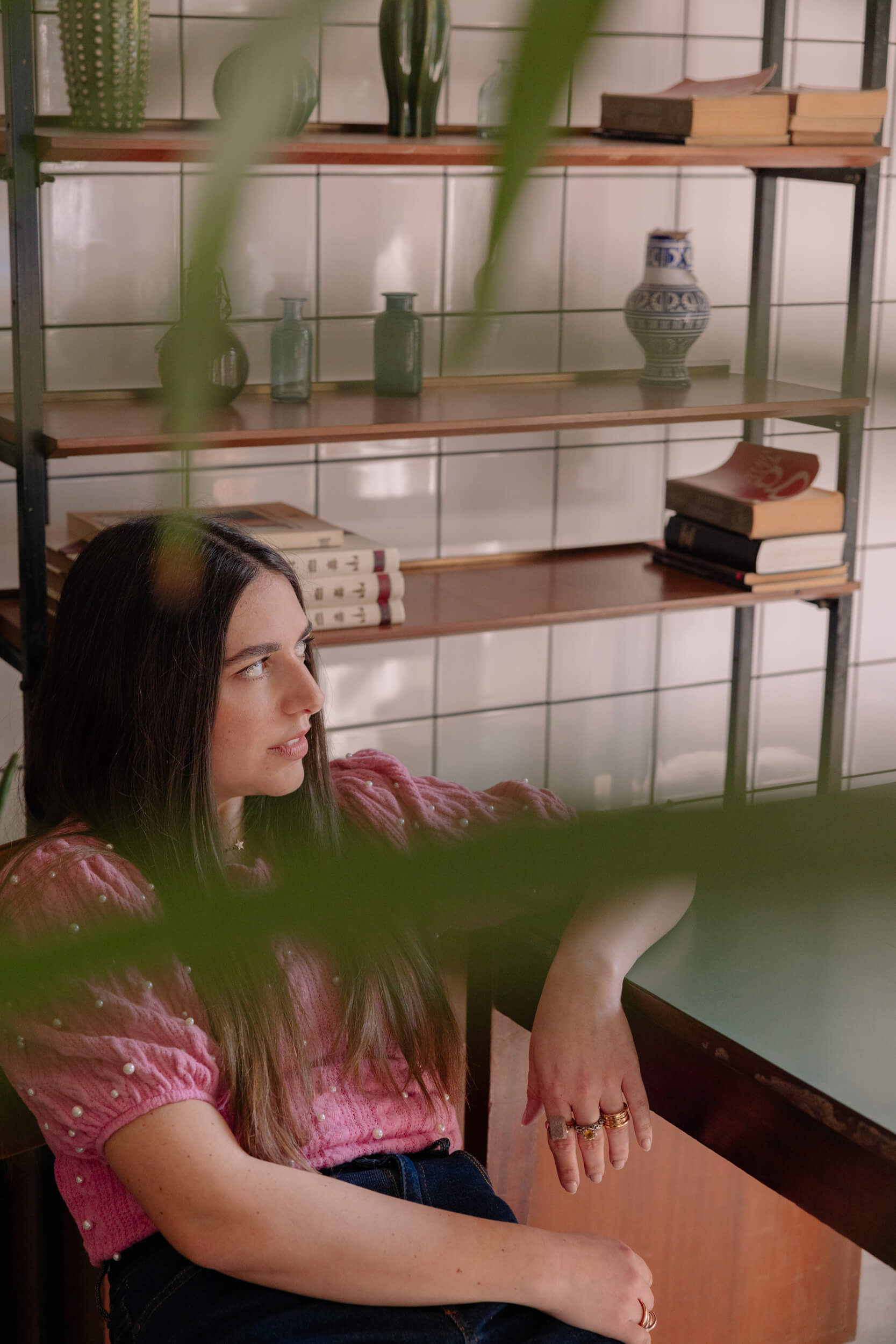
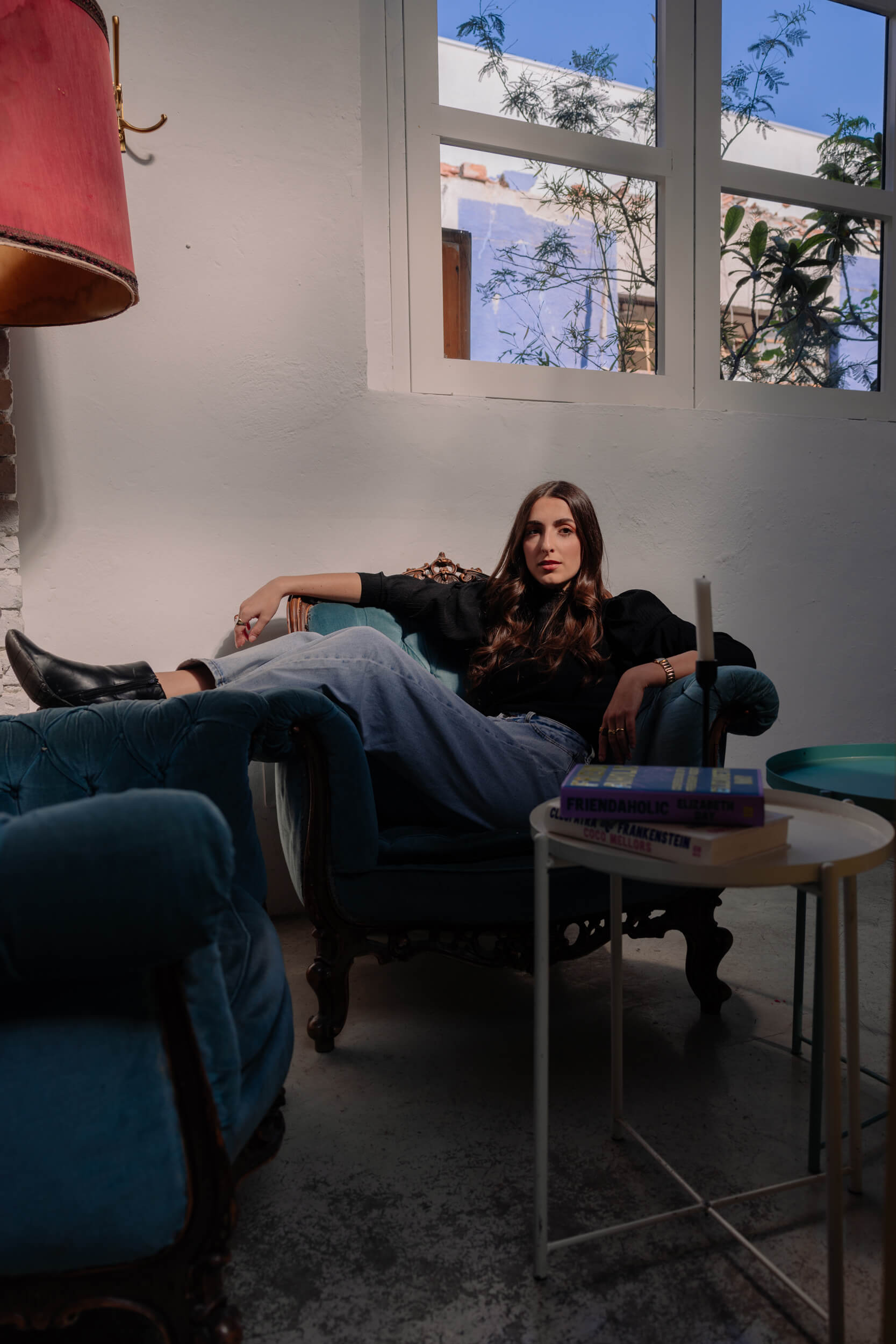
“The thing is that what makes you cry is often what the authors say and you can’t be ready for that.”
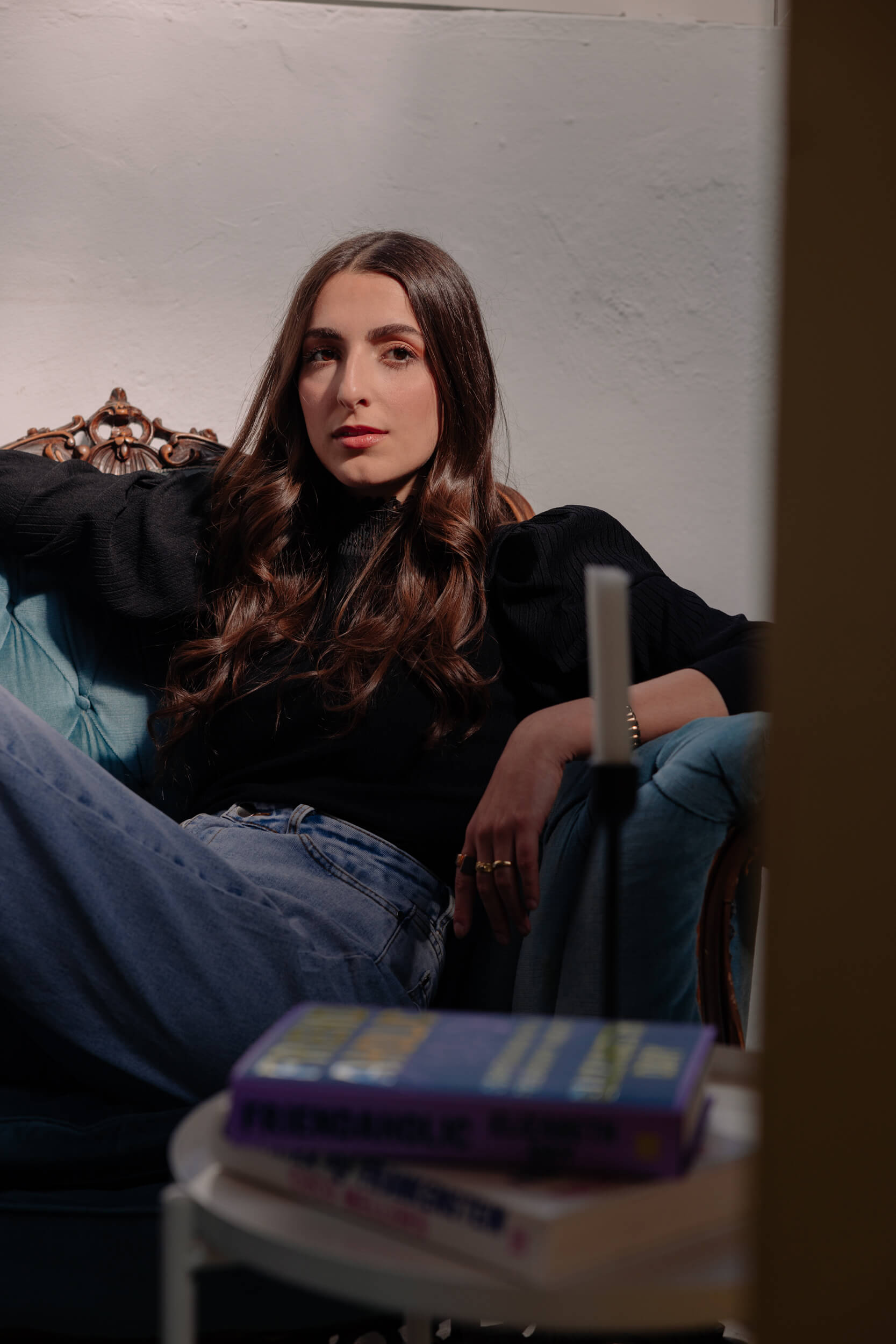
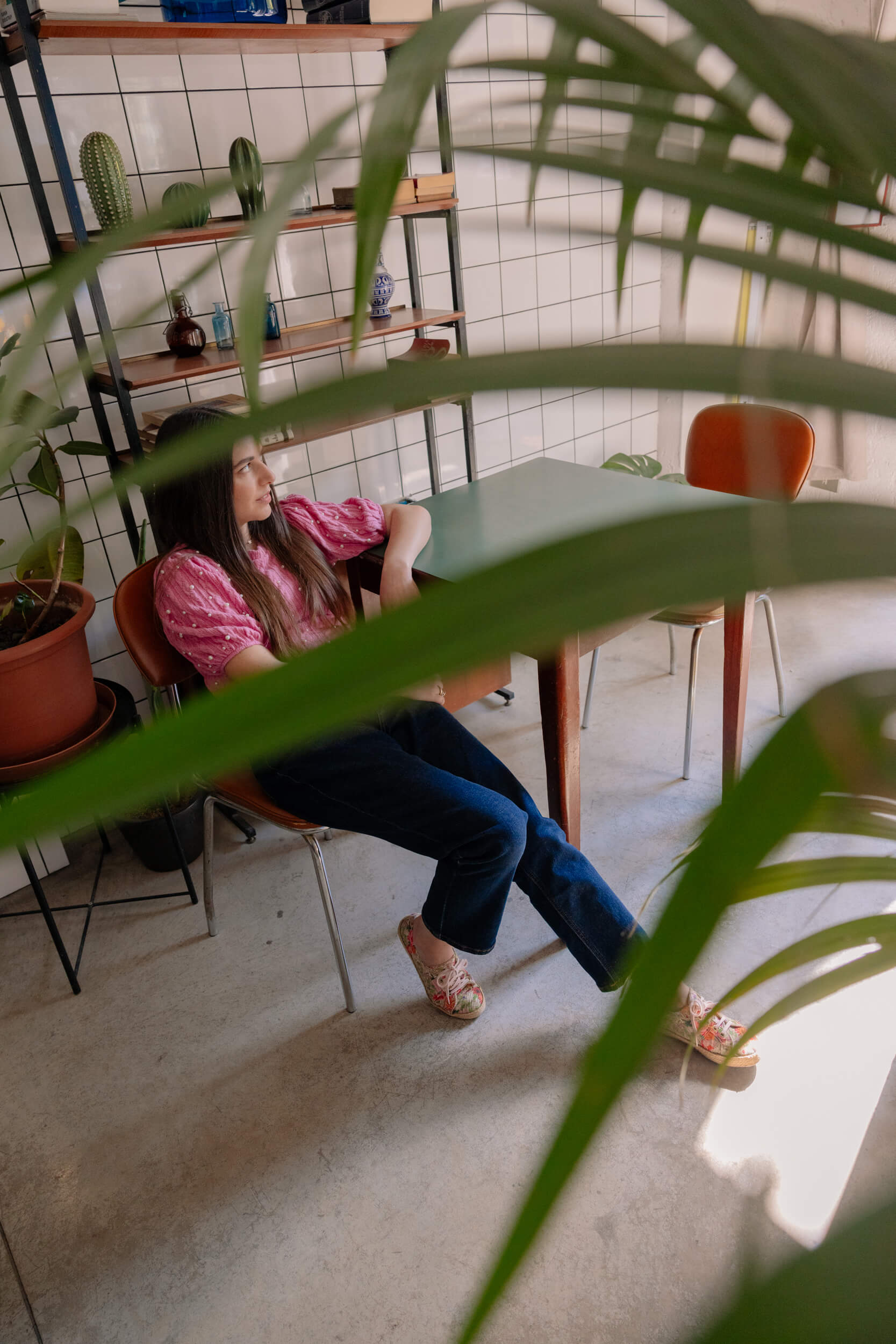
You’re women, entrepreneurs, you often talk about womanhood and women, both as protagonists and authors of books. What are the stories of women that you’d like to talk about more and how would you like your story to be told?
A: We always say that we should write a memoir! [laughs]
We have a motto, which we’d like to tattoo on our skin someday: “For the plot”. To be honest, we have to say that we’ve randomly come across it on Tik Tok a few days before the launch of our website: it was a video where a girl said, “If things go well, great, if they go wrong, it’s for the plot”. You get to add details to the story of your life; just think about movies, there’s none where everything goes right, and the plot is always twisted and thrilling! We like to be inspiring because we’ve never had such right and real inspirations ourselves, our references have always been so far from us or so high-level or so fictional.
Through books, you also discuss mental health, which for me and for us is a very important thing; in fact, a couple of years ago, the first interviews being with Carlotta Vagnoli and Daniela Collu, we launched a mental health format on The Italian Rêve because it was a topic that I would end up tackling with everyone, especially with people I found a connection with. However, I also felt the need – which is sad, from a certain point of view – to create a “format” to make people talk more about this theme, to emphasize it a bit more. It was great because there have been people who’ve told us very significant things, and who’ve maybe felt our chats to be of help. Still, it’s a bit sad that today we need to label something for it to emerge. Do you think it’s important to discuss more and more mental health? Are there books that talk about this topic very well, in your opinion?
G: Absolutely. We were talking about this yesterday with Alice Elliot Dark and Dani Shapiro. I’ve been seeing a therapist for two years and a half now, and I believe that reading and talking about books is the closest existing experience to psychotherapy. Obviously, it’s not the same, but if you can’t afford therapy or if you’re already in therapy, I guess reading could be a valid help because in books I find so many things I go through while in therapy.
A: For me, it’s also and especially a matter of perspectives. I believe the key element of our book club is in our choice of books and in the way we talk about them. We like the idea that the same story, from different perspectives, assumes different shapes, and this happens every month at the book club. We get there after having talked with the authors or the editors about the book, or after having discussed them between ourselves and eviscerated the story, but there we find out things we hadn’t caught because everyone analyzes the stories through their own story, with the filters of their own experience and personal life.
G: I believe many of our books are character-driven, maybe they don’t have any particular plot but very strong characters, and when they’re extra well written they really trigger reflections. Often, these books are written on the basis of the direct experiences of the authors, who put themselves in the game. For example, Alice now is reading “Friendaholic” by Elizabeth Day.
A: Yes, it’s a very beautiful book, an autobiography telling the story of the friendships of the author, also because she believes that we don’t give enough space to friendship and way too much space to love when they’re both actually two very complex aspects in our life. So, it’s important to get deeper into the dynamics of friendships and not only those of romantic relationships. In each chapter, she tells the story of one of her friendships, also analyzing in which phase of her life it happened and how come she reacted in a certain way, and I’m sure that this book comes from years and years of psychotherapy.
G: What’s more, I believe that books that are written with that goal are more therapeutic than “how-to” books.
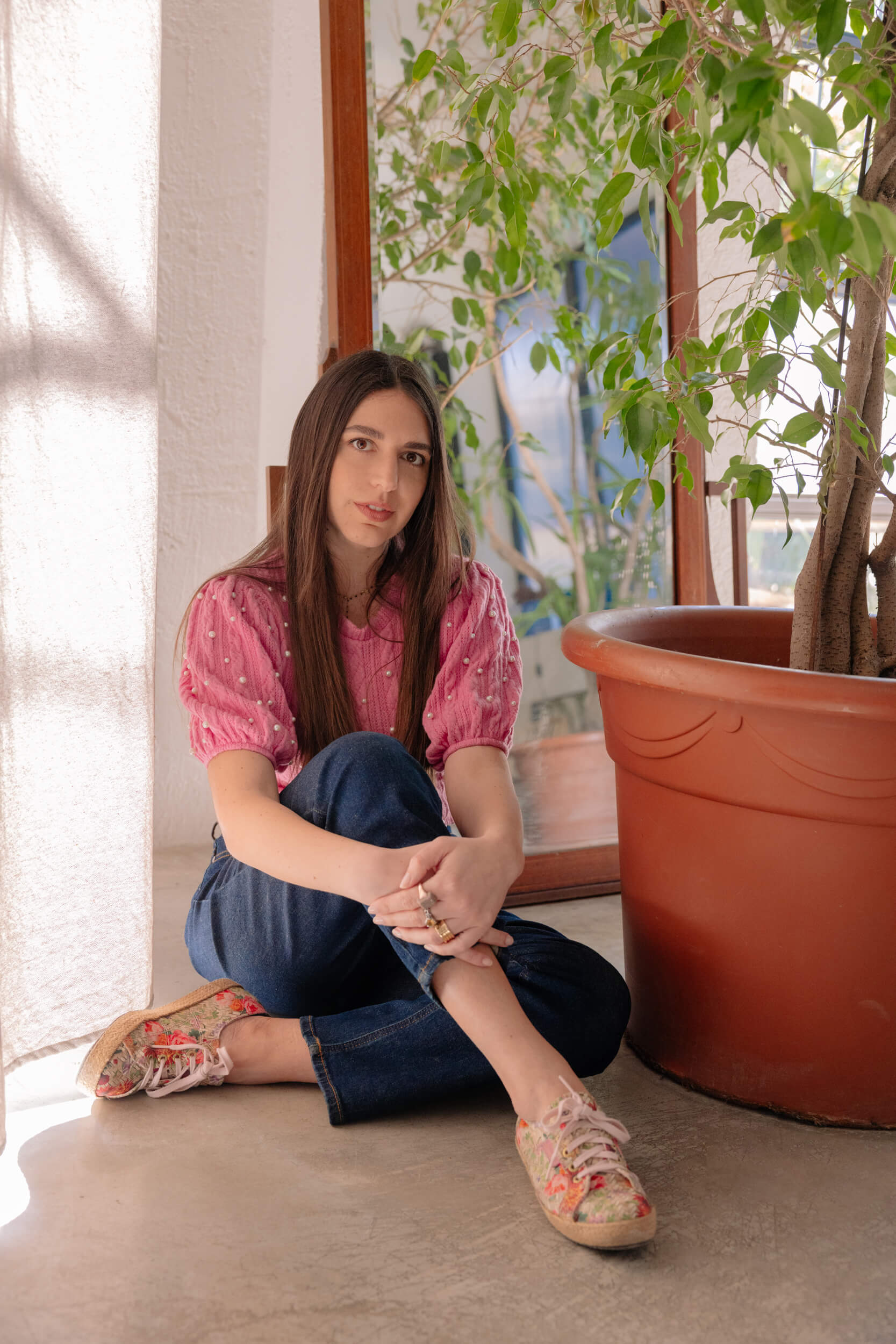
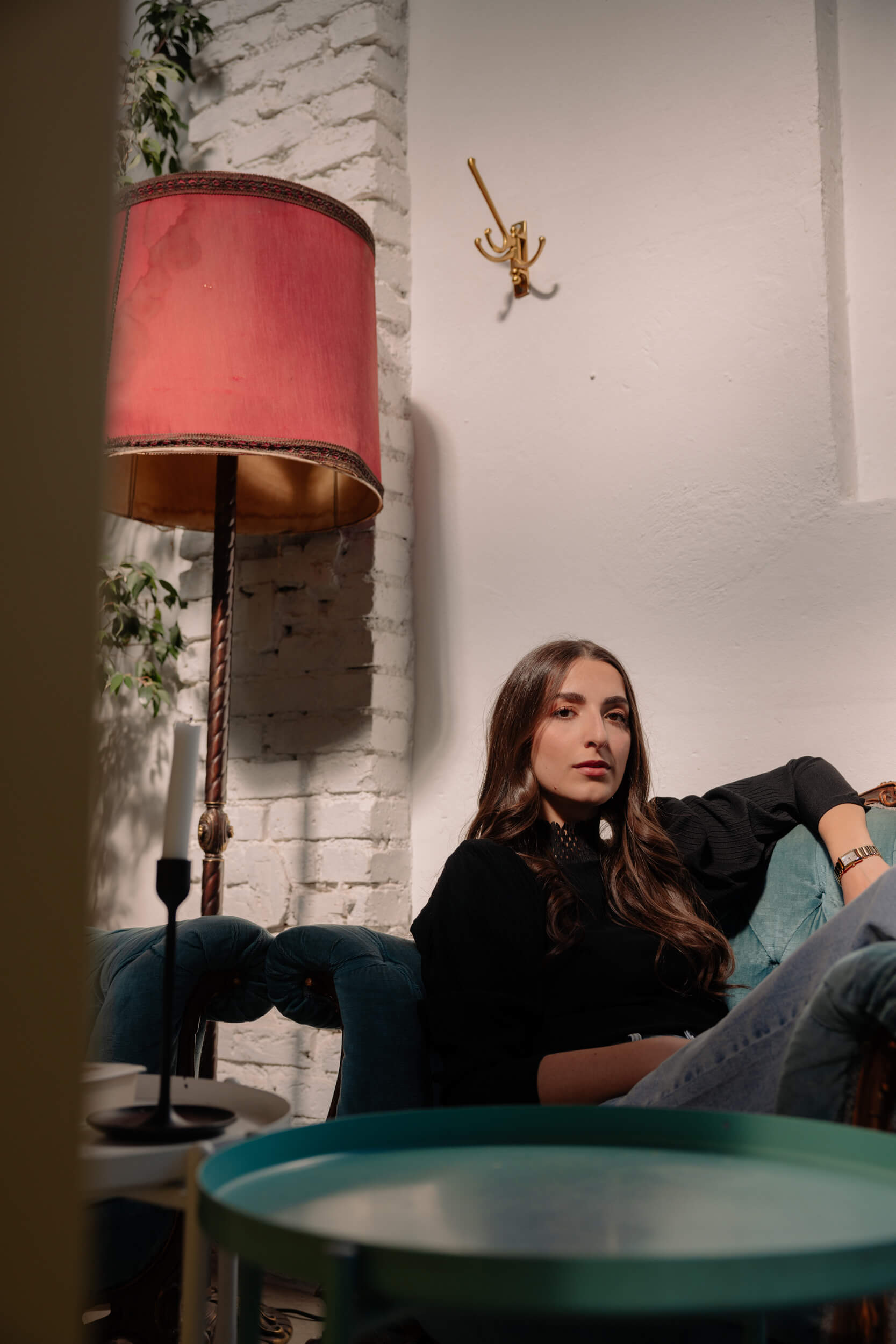
This makes me think about an interview I’ve done recently, where the interviewee was telling me about “A Little Life” saying that it was thanks to that book that she started to go to therapy again. An example of how the power of books is incredible.
G: Speaking of “A Little Life”, in that book the state of a traumatized person is perfectly described. Just like Eleanor Oliphant from “Eleanor Oliphant is Completely Fine”: for me, she and Jude have lots of things in common. Sure, they haven’t experienced the same kind of trauma, but the fact of having a life that’s different from that of the others is something they share, for sure, except that Jude, as an adult, is lucky enough to always be surrounded by love, while Eleanor isn’t. When Eleanor finds out what normality is, she almost experiences a sense of discomfort because she’s not used to it, which is maybe the same thing that happens to Jude when he goes to university and discovers the meaning of having friends and being around people in a normal way. Another book about this theme is “Sorrow and Bliss”, a very beautiful novel by Meg Mason, who’s also been a guest on an episode of Elizabeth Day’s podcast “How to Fail”.
A: One of the books tackling the theme of depression, about which I’ve heard the best feedback, is “The Invisible Life of Addie LaRue” by Victoria Schwab, where one of the protagonists has a very challenging relationship with himself. There are about 30 pages of the inner monologue of this character in one of the lowest moments of his life, which I think perfectly describes how a person with important emotional disorders feels like.
The book on your nightstands right now?
G: I’m reading “Romantic Comedy” by Curtis Sittenfeld. I bought it in London, I don’t know if it will ever be released in Italy.
A: I’m reading four books [laughs]. Out of these four, I can only unveil one, which is “Friendaholic” by Elizabeth Day.
Is there a book that you always promise yourselves to read but can never start?
G: For me, until recently it was “A Little Life”, but there are so many. For example, for lots of months, I’ve had on my nightstand the book “Our Missing Hearts” by Celeste Ng, but then we’ve had a series of “books of the month” to read, so it’s still there, untouched.
A: For me it’s “Hell Bent”, the sequel to “Ninth House” by Leigh Bardugo. I bought it the day it was published, I was so thrilled, I queued in the library, I’d been waiting for it for three years… However, it’s still there, I haven’t read it.
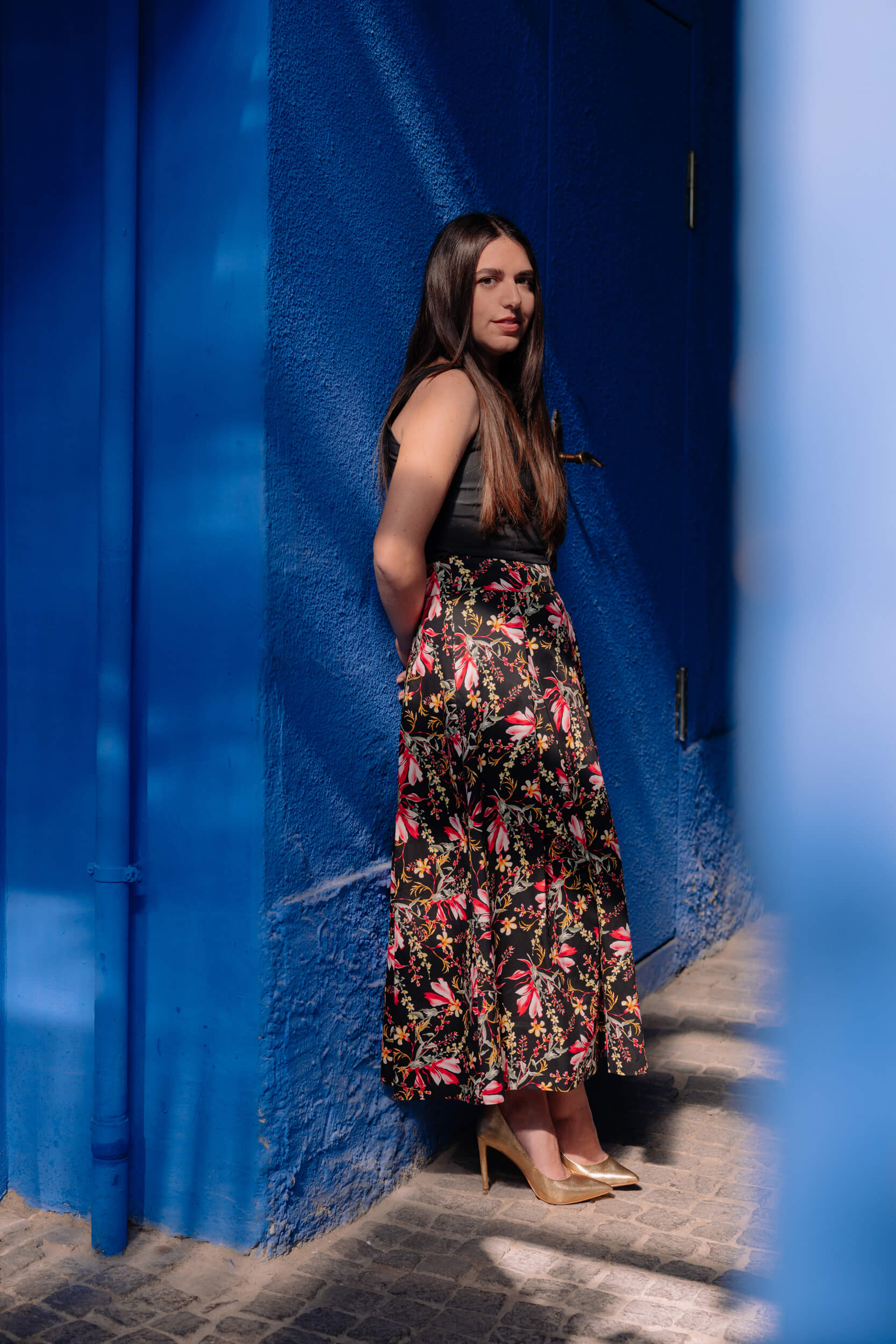
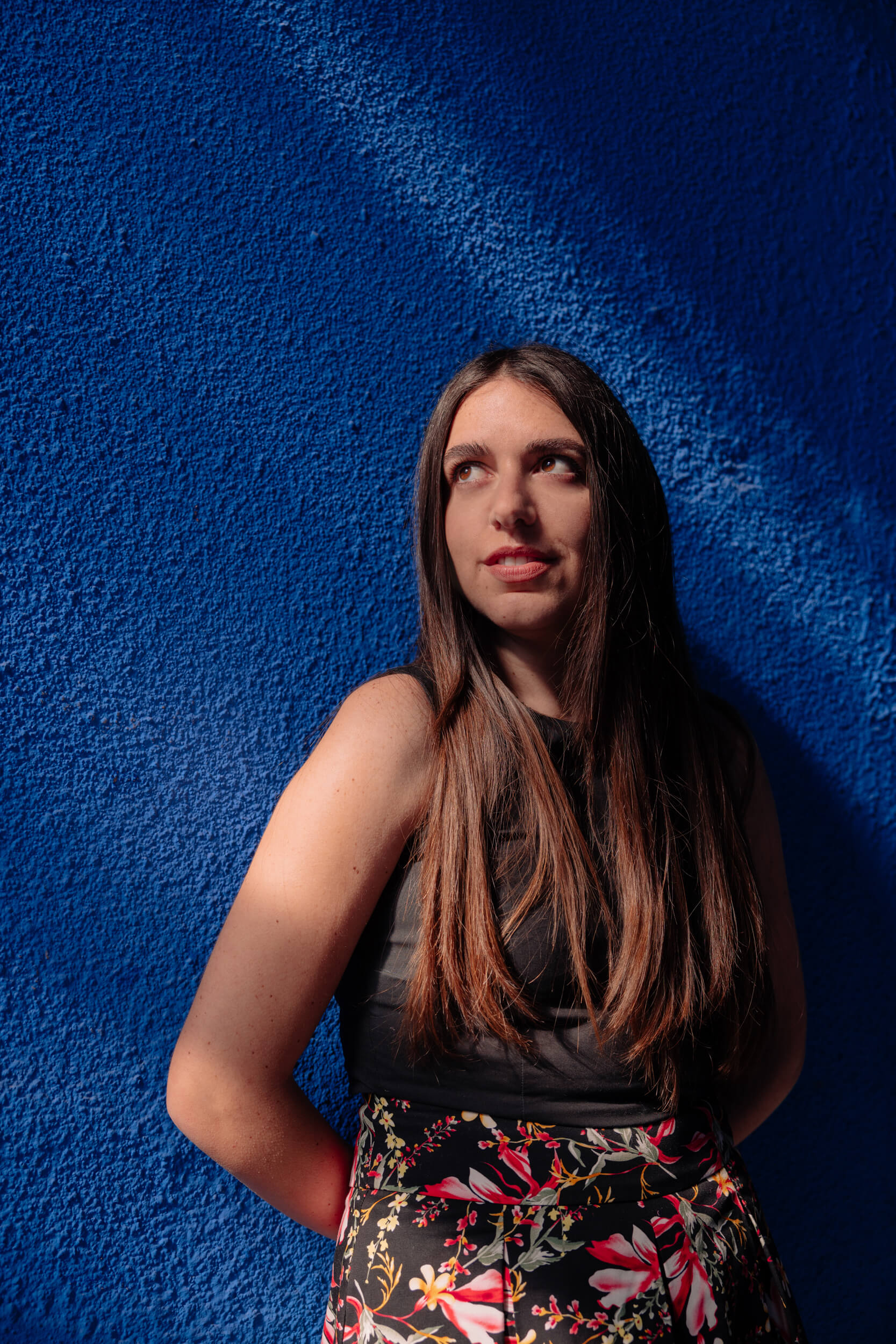
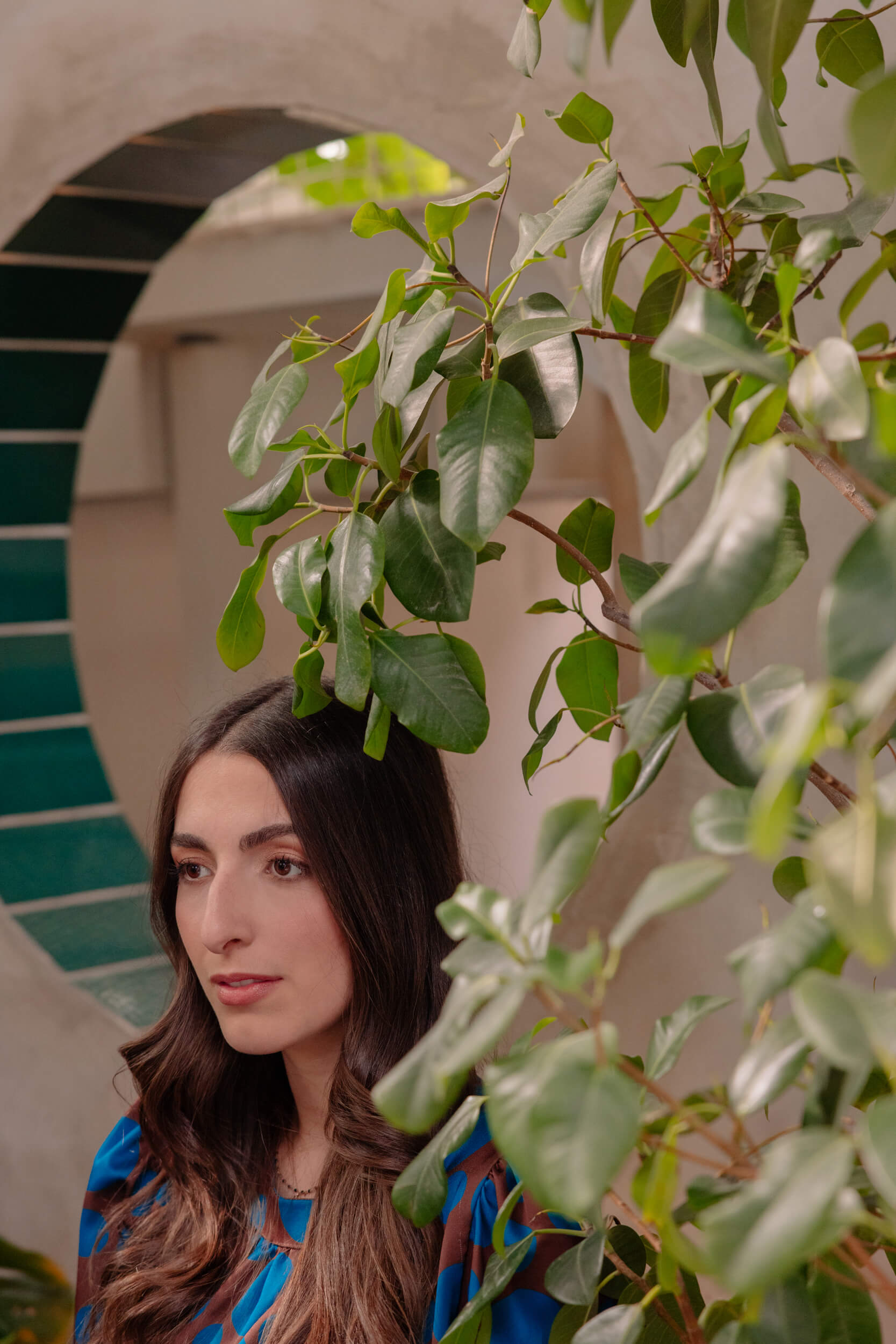
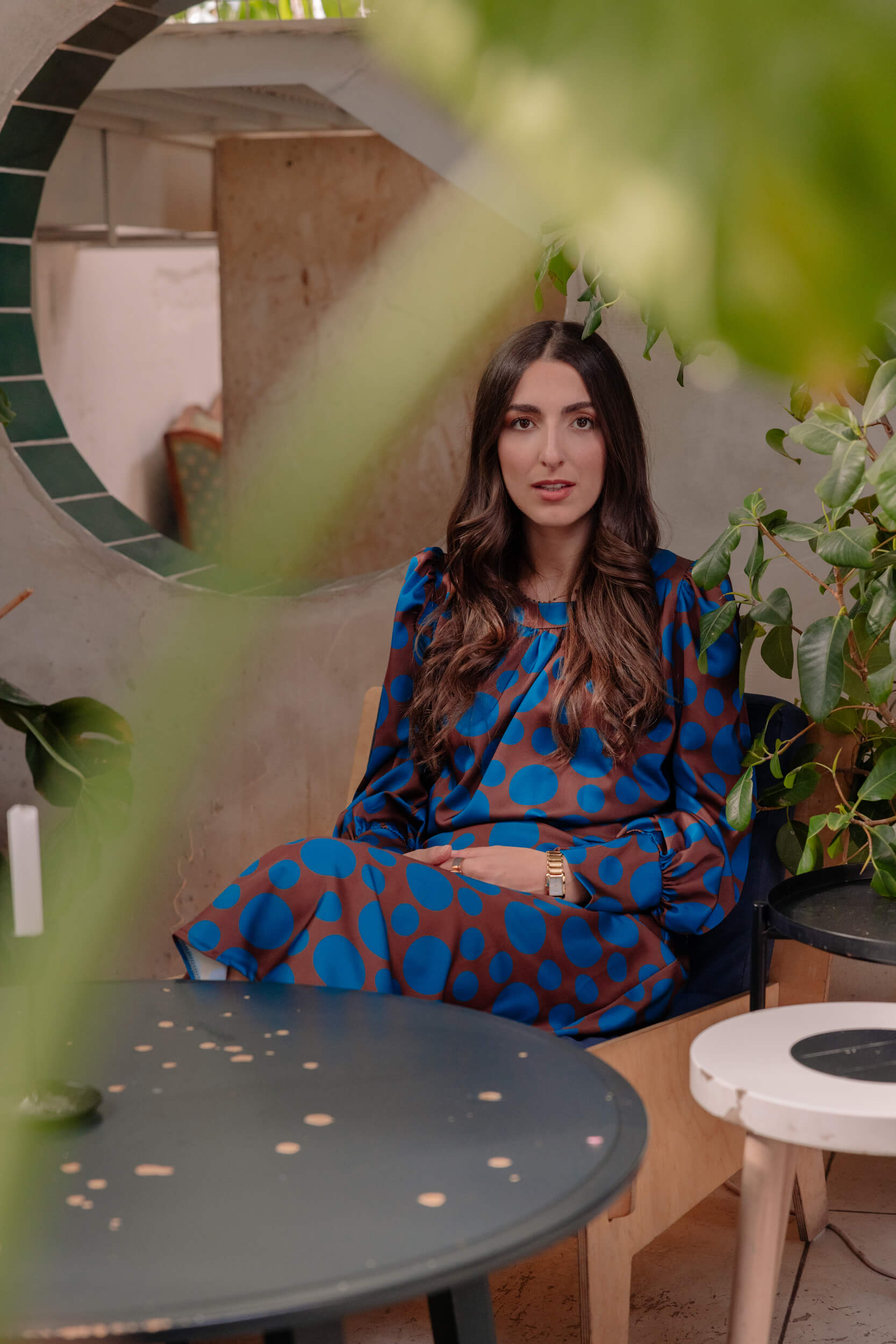
What’s the next book you’d want to see adapted into a film or TV show?
A: “Cleopatra and Frankenstein”, of which I know they’ve bought the film rights, Universal is dealing with it, I think, as a TV series. I think it’s a perfect story for the screen because it’s a coral novel, in which every chapter is dedicated to a different character, and all are characters revolving around a couple where she’s 24 and is British, and he’s 42 and is an advertising executive in New York and they get married after having met the week before, and from here a series of reflections on life take place, and on themselves, what they want to do in the future, and on their friends.
G: Also “Eleanor Oliphant is Completely Fine” is to be adapted for the screen and I think they’ve also found a director, who should be the same director of “Fleabag”. Then, also “This Time Tomorrow” by Emma Straub will be adapted into a TV series, and during our interview with Dani Shapiro, she told us she’s working on the pilot.
A: The movie based on the novel “Eileen” by Ottessa Moshfegh is soon to be released, too, with Anne Hathaway, they’ve screened it at Sundance.
Furthermore, I’ve recently started to watch the show “Tiny Beautiful Things” based on the book of the same name by Cheryl Strayed and I found it beautiful.
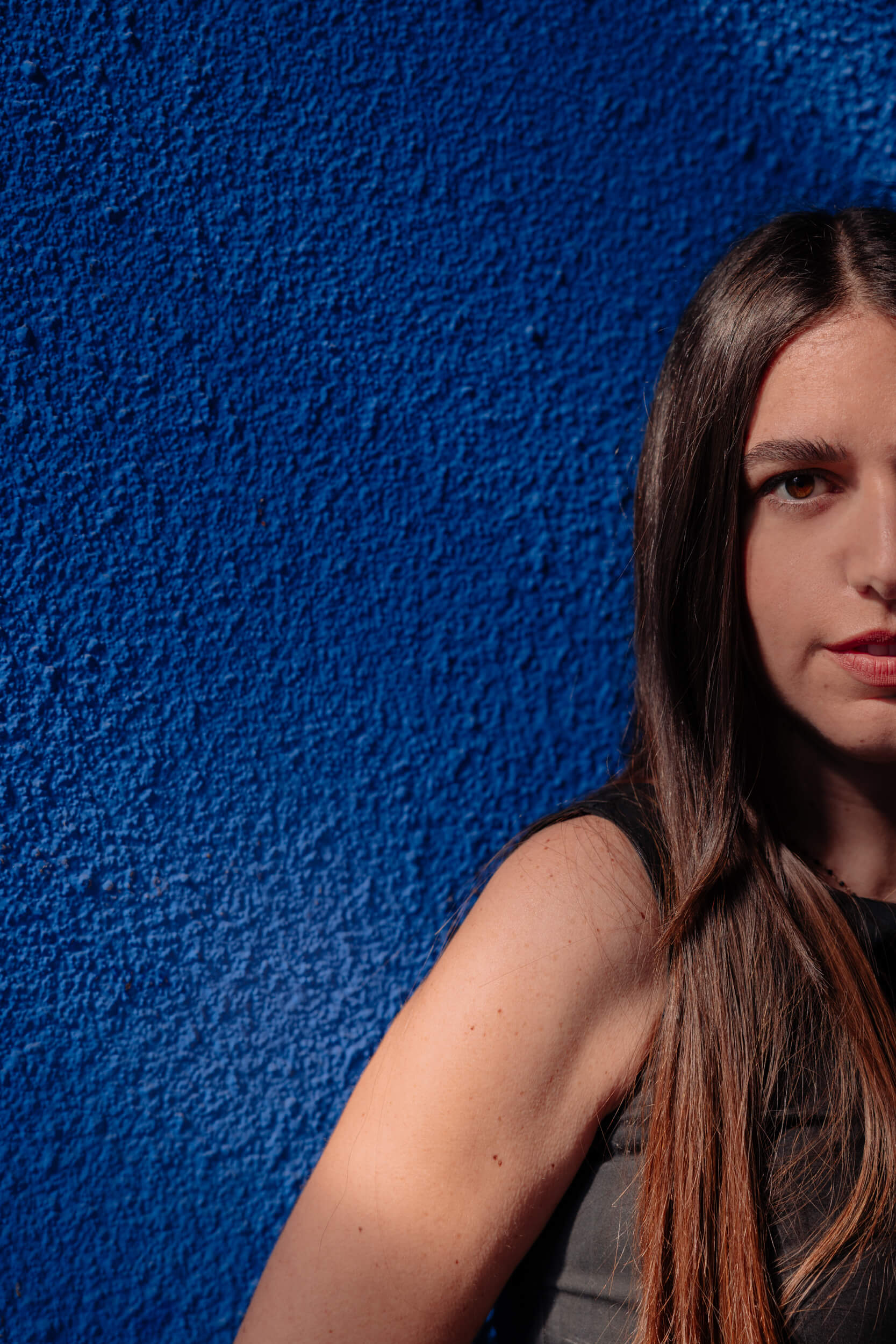
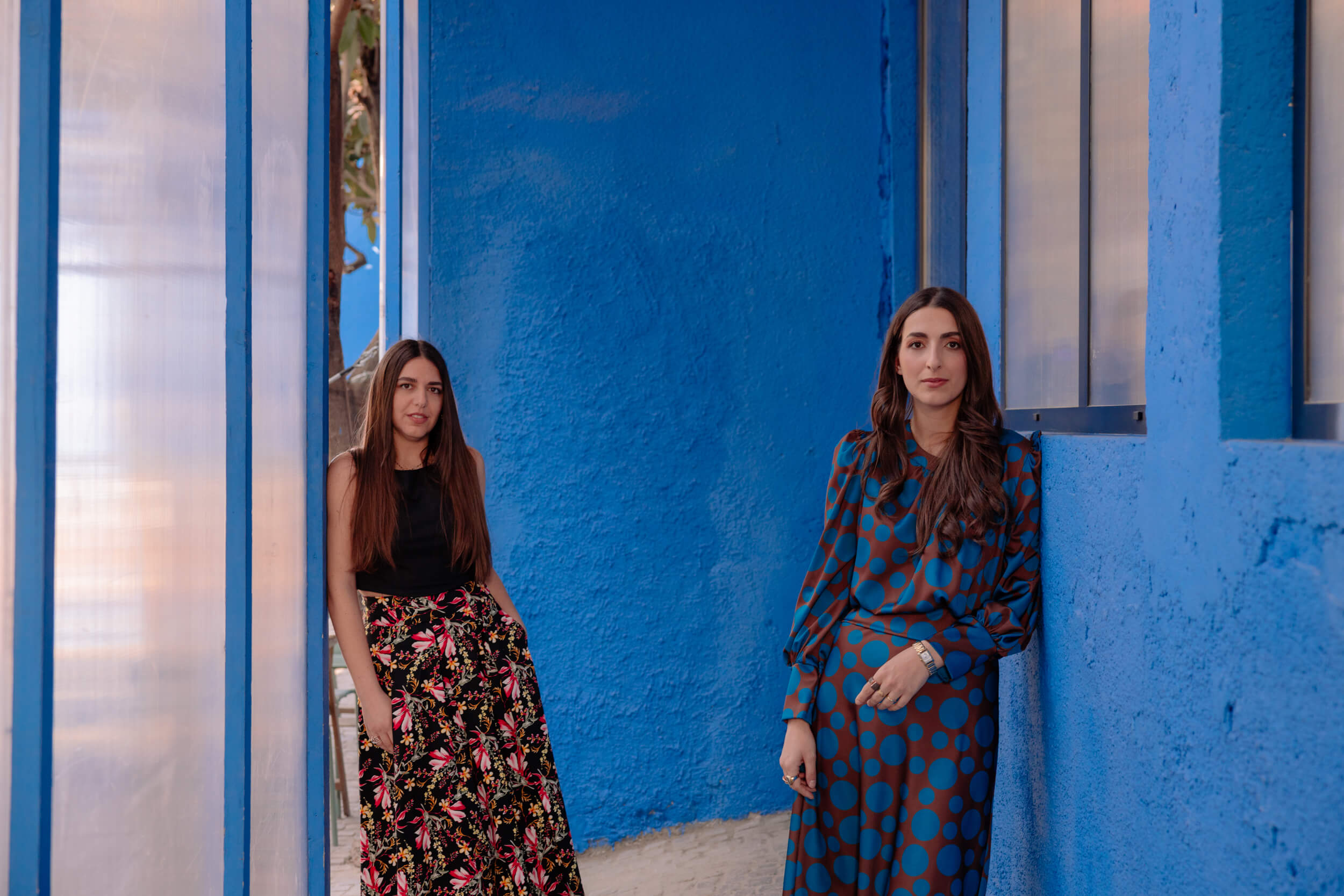
Through books, you also talk about what it might mean to feel good about yourself. What does it mean to you to feel comfortable in your skin?
G: I’m working on accepting myself a lot, which is still an ongoing process. It’s something I’ve been processing lately. Sometimes, we’re bombed on all sides by people that are the best in their field, the bookaholic, the person who’s always at the gym, the businesswoman… However, we, objectively, can’t do everything, which is something I feel very guilty about very often because right now I’ve been putting aside lots of things to privilege work. But then, when I think about the reason why I’ve been putting aside so many things which might make me feel good if I did them, like working out, for example, I realize that I feel a unicum, that I make sense generally. If we could get out of ourselves and look at ourselves from the outside, it makes sense, but the problem is that when we spend too much time inside our heads, we have an identity crisis, we break into pieces and think about all things that are wrong and don’t work and never about the general picture and all the cool things we do.
A: I really struggle to feel comfortable in my own skin, but the fact that I need to be the image of something I believe in encourages me to try and be the best version of myself. I’m also the face of Heloola and I have an idea of Heloola that goes through me, so I try and align to what I think could inspire those who follow us and especially to best represent what’s behind the scenes and do it through my own person. I say this because I also record Tik Tok videos, even though I’m not a person who naturally feels serene to be in front of a camera, I don’t like it and I don’t feel comfortable, but I have to do it because it’s a way of communicating. Still, it’s hard for me because I film myself, I edit my videos, I watch them, I analyze myself all the time and so I’m constantly bombed with my own face. Oftentimes, we’ve sponsored my videos on Instagram, with millions of views for a 15-second video in which I say something with my face filmed in my house, and this is challenging for someone who doesn’t have a completely peaceful relationship with herself. However, I put myself in the game, so, despite everything, it’s not a limit, but I’m quite self-conscious about this.
G: Besides the aesthetic theme, there’s also the more general theme about how we live our life. Today, we struggle because we live in the “honesty” era, where everyone talks about the moment in which something hasn’t gone well but no one ever tells the story at the moment in which it’s not going well, so there’s always a happy ending to everything. This suggests that the moment of discomfort is always still stigmatized and we live in a continuous “ping-pong” between “let’s spread positivity and optimism” and “let’s not spread bad vibes”, which is very complicated, especially when you’re doing something publicly targeting other people, or when you’re in a context where you share your days with lots of people and have bad moments, you wonder if it’s right to share the bad moment. But, for sure, by sharing the bad moment, you find out that so many other people have gone through or are going through something similar, and by confronting each other’s story, we get to feel better, and we make progress. On the other hand, we also fear being the one who’s “ruined the vibes”. Our days are really marked by this ping-pong.
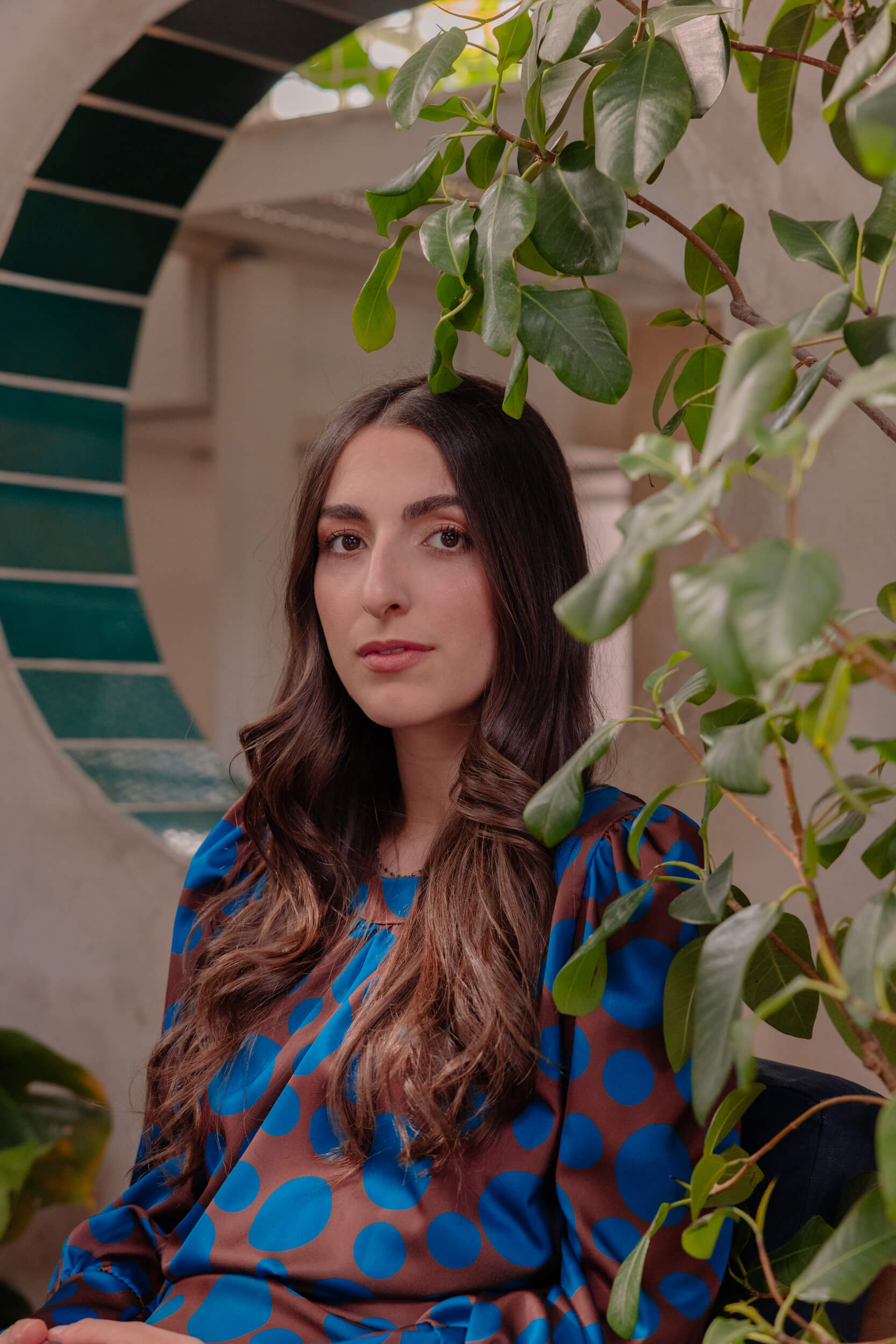
“The problem is that when we spend too much time inside our heads, we have an identity crisis, we break into pieces and think about all things that are wrong and don’t work and never about the general picture and all the cool things we do.”
What’s your happy place?
A: The pub [laughs]. My boyfriend loves pubs and this has also been the topic of our first conversation, the first thing we talked about was pubs, as we share an enthusiasm for England. So, right now I associate pubs with happy moments because a pub is not a bar, that gives you that exclusivity feeling, with its dress codes and drinks: pubs welcome everyone and are afternoon things, you can also go there to have a bite at any time of the day.
G: For me, my happy island is my house. I don’t have any kind of extra special house, to be clear, but ever since I started living on my own in my own place, I’ve “recreated” it in a way that would be a mirror of myself as much as possible. I like the idea to get into my house and feel good because for a while it wasn’t like that, in my previous houses there has always been something that I didn’t like. When the house is clean and the candles are lit, that’s when I feel peaceful.
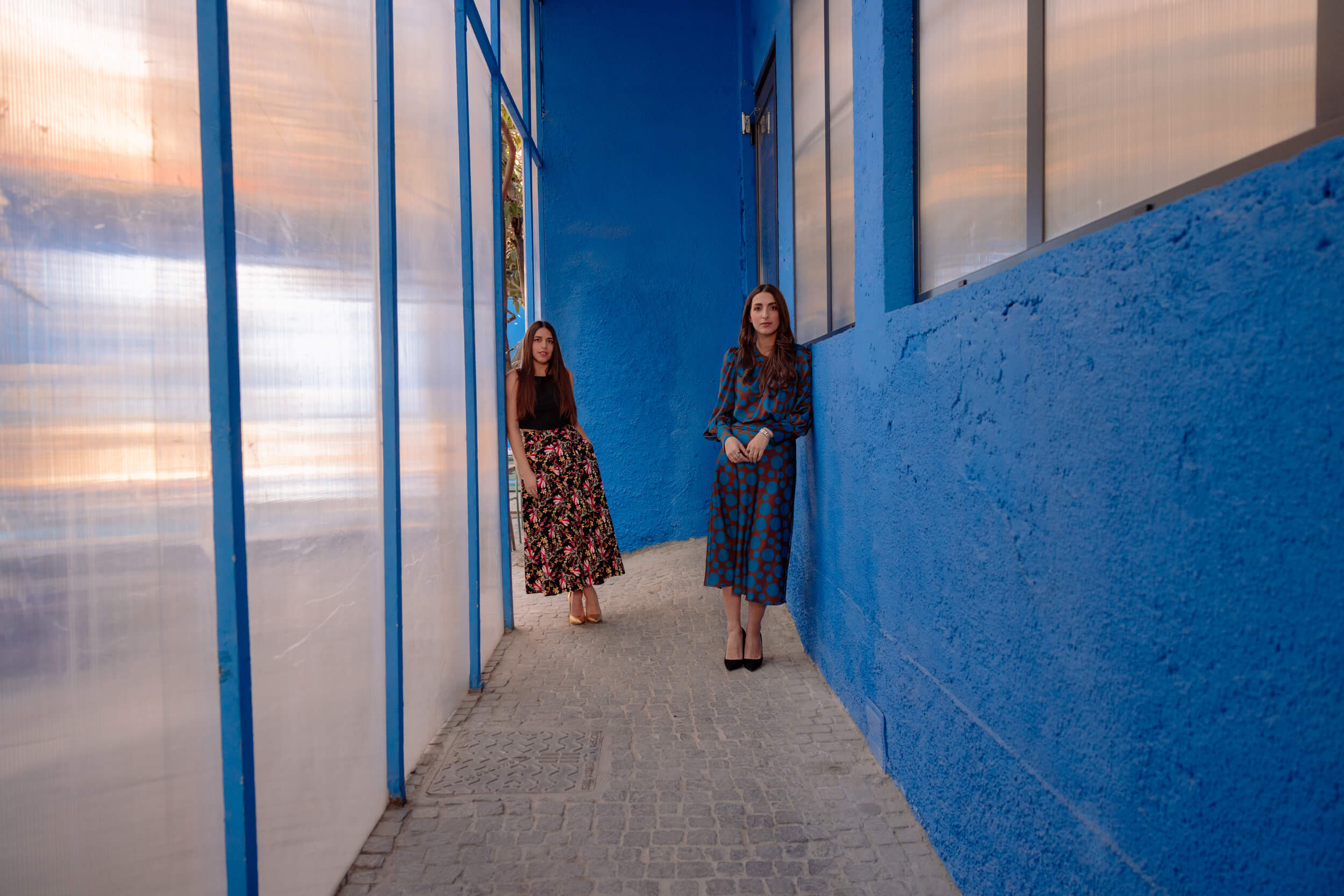
Photos by Johnny Carrano.
Makeup & Hair Alice by Claudia Raia.
Makeup & Hair Giada by Sara Vircillo.
Thanks to Fuorimano.
Follow Heloola.

